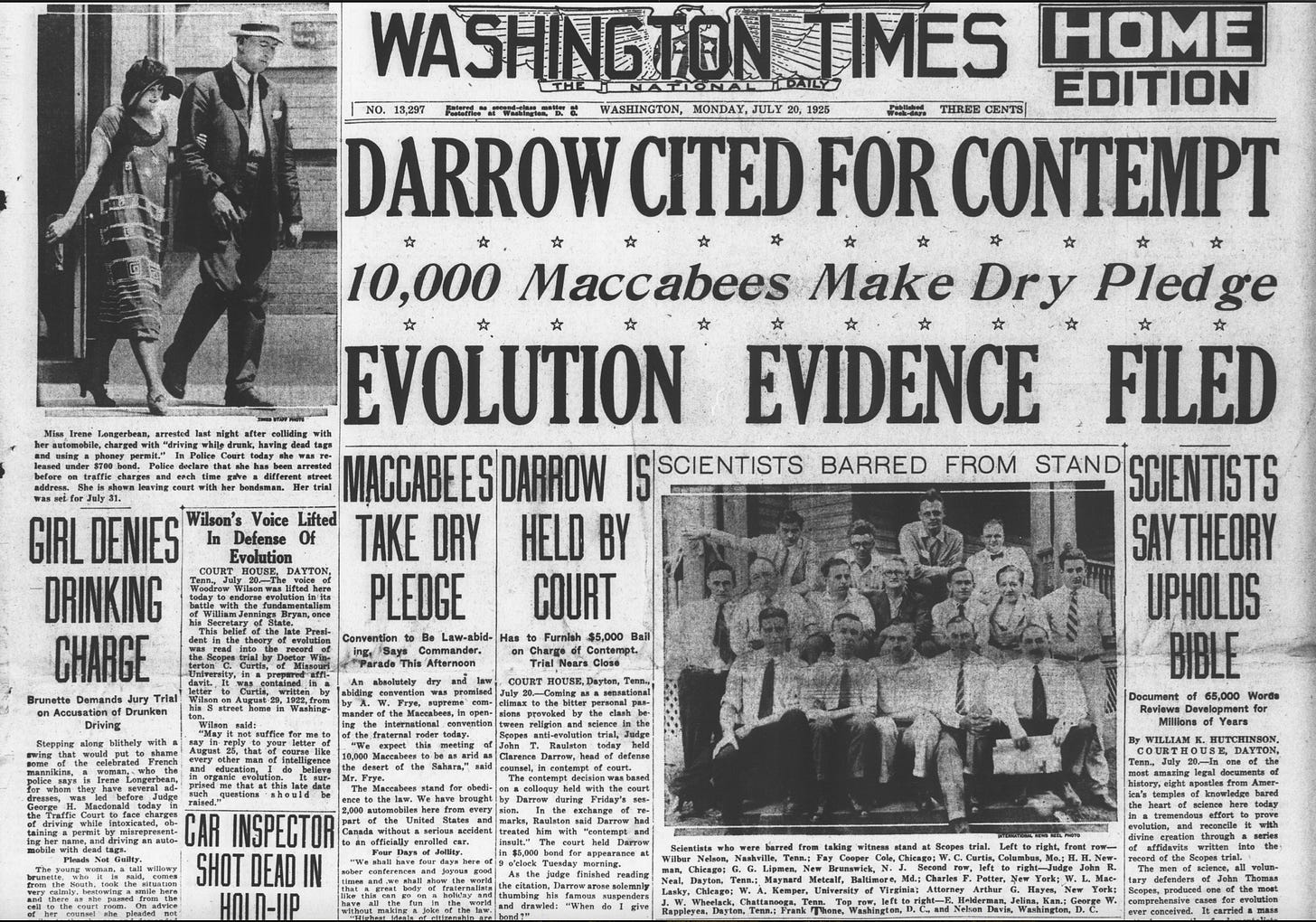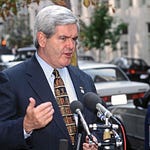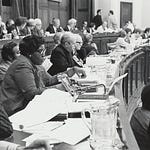On July 20, 1925 the Washington Times published three front page stories about Tennessee v. Scopes—along with Prohibition, crime, and a woman who was arrested for drinking and driving, the Scopes Trial raised sensational questions about modern American life.
In 2016, white evangelical Christians showed up at the polls in force for Donald J. Trump, part of a diverse movement that defied expectations to sweep him into the White House. In the past decade, scholars and journalists have spilled a lot of ink on what seemed initially like a strange affinity of highly religious people for a base, immoral and violent man.
But Trump’s opportunism and libertarianism offered opportunities for policies on which establishment Republicans—even Ronald Reagan—had failed to deliver. One of those has been to fuel public morality by returning prayer and Biblical teachings to public school systems across the country. As recently as May 30, 2014, South Carolinian Sheri Few, already a failed three-time candidate for state office, campaigned to become superintendent of education on a platform of parents rights that included the teaching of “intelligent design” in science classes.
In case you have never heard that phrase, intelligent design is the theory that the world must have been created by an intelligent being—in other words, God. Sheri was promoting creationism, rebranded as intelligent design, to make it appear to be a science. In fact, evolution is a science—intelligent design is a religious philosophy that has no basis in science.
Other Republican candidates easily portrayed Sheri as a crank. She lost her primary and set out to change politics instead. She devoted herself to parental control of education, a cause that traces its history in southern states to white politicians and their constituents opposing, often violently, the integration of public schools after Supreme Court-ordered desegregation in 1954.
Sheri had been the president of South Carolina Parents Involved in Education since 2000; in 2014, it became United States Parents Involved in Education, or USPIE—as in apple pie. Today, PIE has chapters in 14 states, and—like its more successful counterpart, Moms for Liberty—is engaged in a grassroots fight to end the teaching of race and sexuality, and refuse federal dollars that mandate education standards and nondiscrimination. PIE also wants to create “Education Sanctuaries” where, by refusing federal dollars, state systems can reorient school curricula to the “traditional values of Faith, Family, and Country.”
The movement to put Christian teachings back in public schools, which ended when the Supreme Court determined in the 1962 decision Engel v. Vitale that Christian prayer violated the establishment clause, has been a consistent goal of right-wing conservatism for the last 60 years. It has spurred the massive growth of home schooling, Christian private schools, and the school voucher movement.
But the MAGA movement has pushed Christian extremism into state and federal government too. Using a strategy of directly confronting federal law, these politicians and officials now see Trump-appointed Supreme Court justices as a route to religious control of the public sphere. On June 27, 2024, Oklahoma State Schools Superintendent Ryan Walters announced that all classrooms in his state would be supplied with a Bible and teachers of all subjects would be expected it use it in their lessons.
It is already legal in Oklahoma to teach the Bible as part of a humanities curriculum, but not as “religious doctrine.” However, a Bible lesson in a biology, physics, or chemistry class would be just that: a religious explanation for the creation of the earth and every living thing on it.
This is why I asked my New School colleague, historian Brenda Wineapple, to come talk to me about her new book, Keeping the Faith: God, Democracy, and the Trial That Riveted a Nation (Random House, 2024), a fresh take on the 1925 trial in which biology teacher John Thomas Scopes was charged with violating Tennessee’s law that only evolution was to be taught in the state’s public schools. A nationwide media spectacle, the so-called “Monkey Trial” was not just a showdown between science and religion, civil rights and censorship. It was also an epic battle between two of the leading public figures of the day: Christian politician William Jennings Bryan and trial attorney Clarence Darrow.
You can watch silent footage of the Scopes trial; the audio track seems to be from a contemporary radio broadcast. (Courtesy of The History Channel)
Show notes:
You can read The Butler Act, the Tennessee law that Scopes violated, here.
Ellis Cose has written a history of the American Civil Liberties Union’s first century, Democracy, If We Can Keep It: The ACLU’s 100-Year Fight for Rights in America (The New Press, 2020.)
Claire references Brenda’s last book about the impeachment of Andrew Johnson, The Impeachers: The Trial of Andrew Johnson and the Dream of a Just Nation (Random House, 2019.)
Claire and Brenda discuss the cultural importance of Inherit the Wind, a 1955 play by Jerome Lawrence and Robert E. Lee that dramatized the Scopes trial.
If you want to read more about William Jennings Bryan, try Michael Kazin, A Godly Hero: The Life of William Jennings Bryan (Knopf, 2006.)
Clarence Darrow fans may wish to try John A. Farrell, Clarence Darrow: Attorney for the Damned (Doubleday, 2011.)
Brenda mentions Baltimore journalist H.L. Mencken’s coverage of the trial, and Mencken’s disdain for rural America. You can read some of his columns from the Scopes trial in S. T. Joshi, Ed., H.L. Mencken on Religion (Prometheus Books, 2002.)
Like Claire, journalist Daniel Klinghard compared Bryan to Trump: see “Forget Hitler: Trump Is the New William Jennings Bryan,” U.S. News and World Report, March 4, 2016.
You can download this podcast here or subscribe for free on Apple iTunes, Spotify, Google Podcasts, or Soundcloud. You can also keep up with Political Junkie content and watch me indulge my slightly perverse sense of humor on X, Instagram, Threads, YouTube, and TikTok.
If you enjoyed this episode, why not try:
Episode 51, MAGA Is the Newest, and Oldest, American Myth: A conversation with American Studies scholar Richard Slotkin about his new book, "A Great Disorder: National Myth and the Battle for America."
Episode 32, The Court Room of History: A conversation with historian Jacquelyn Dowd Hall about her book "Sisters and Rebels: A Struggle for the Soul of America.”
Episode 28, Terrorism Begins At Home: A conversation with legal journalist Jeffrey Toobin about his new book, "Homegrown: Timothy McVeigh and the Rise of Right-Wing Extremism."
And here’s a bonus: all new annual paid subscriptions include a free copy of my book about political media, Political Junkies: From Talk Radio to Twitter, How Alternative Media Hooked Us on Politics and Broke Our Democracy (Basic Books, 2020.)














Share this post